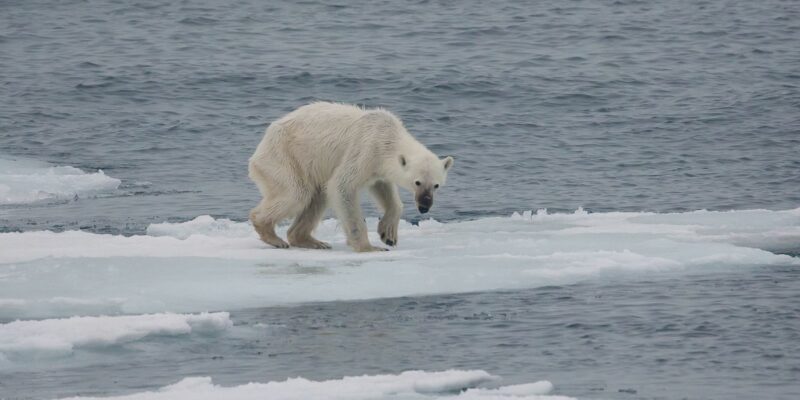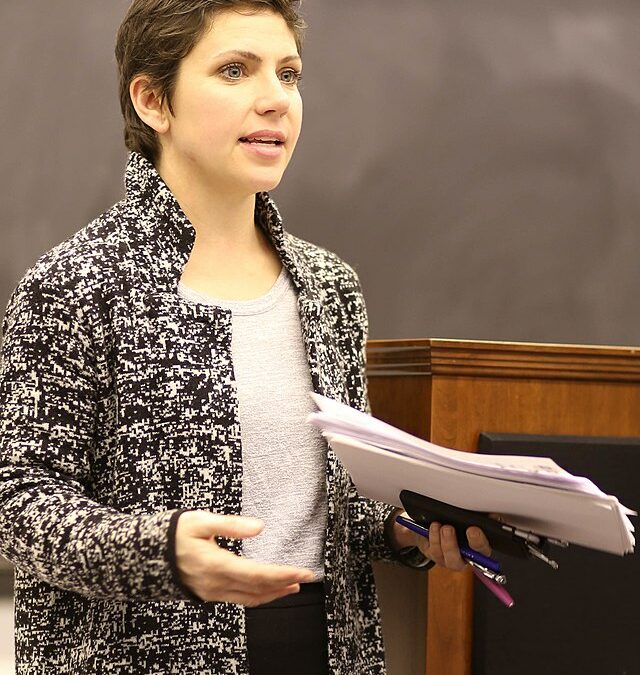
Seemingly every month we get a story that says that climate change is going to destroy the world. Just a week ago some activists tried to trash a famous Van Gogh painting as a way to protest governments “not doing enough to save the planet.”
The New York Times has come to epitomize the doomsaying. The newspaper wrote, “From “Don’t Look Up” to Greta Thunberg videos to doomsaying memes, we are awash in warnings that we are almost out of time. But the climate crisis is outpacing our emotional capacity to describe it.”
It’s true that climate change is genuine and that it could pose a serious threat to civilization, but climate scientists at the University of Colorado-Boulder recently made a rather reasonable request to their colleagues: please stop freaking everyone out.
“In a letter in the Proceedings of the National Academy of Sciences,” according to Study Finds, “the authors write that many scientists are focusing way too much of the worst-case scenarios of climate change and environmental shifts all around the globe. While the team notes that these problems are real, constantly preaching impending doom is counter-productive and overshadows the more likely outcomes of global warming. These more-likely outcomes fall into the middle of the climate change conversation — not good, but also not extremely bad.”
The scientists explained their reasoning in a press release. Here it is:
We’ve seen it splashed across news headlines: future sea-level rise that could consume the state of Florida, predicted global temperature spikes of 9 degrees F by 2100—threats of catastrophic climate scenarios leading to societal collapse. But now, a CU Boulder-led team is pushing for climate scientists to put the more likely and plausible middle-range scenarios to the research forefront, instead of solely the worst-case futures.
“We shouldn’t overstate or understate our climate future,” said Matt Burgess, CIRES fellow, assistant professor at CU Boulder and lead on a letter published this week in Proceedings of the National Academy of Sciences (PNAS). “People need to think in terms of gradations, not absolutes. Yes, we need to be aware of the extremes, like climate solutions that get us to net zero before mid century, or on the flipside, global catastrophes. But it’s what’s in the middle that is more likely. And that deserves more research.”
The letter, coauthored by CU Boulder’s Roger Pielke Jr. and University of British Columbia’s Justin Ritchie, is a reply to a PNAS perspectives paper entitled, “Climate Endgame,” led by University of Cambridge’s Luke Kemp, that argues catastrophic climate futures, including human extinction, should be a main emphasis in climate research.
The CU Boulder team argues overemphasizing worst-case climate scenarios, like RCP 8.5, turns attention away from the most likely future. “Right now, not as many climate models focus enough attention on middle scenarios,” said Burgess. “The SSP2-3.4 scenario, which might be one of most plausible emissions scenarios, wasn’t featured at all in the IPCC’s latest impacts and physical science reports. That should probably change.”
According to Burgess, we shouldn’t ignore the RCP 8.5 and SSP5-8.5 climate scenarios completely. “We want to know what might happen in extreme scenarios, and physical climate cycle feedbacks might make warming worse than emissions would suggest. But for the emissions in that scenario to happen, all the regions in the world in 2100 would need to have over $100k GDP per capita, with no climate policy the whole century, all-in on coal, despite facing unlivable heat in tropical regions with the warming that scenario produces. That’s just not realistic,” Burgess added.
And on the other side of the spectrum, we also are unlikely to hit the low-end climate warming scenarios that limit warming to 1.5 degree C by 2100. “That would be a daunting task to keep us that low—we are almost there now,” said Burgess.
Many experts agree that what’s much more likely is something more in the range of 2-3 degrees C (3.6-5.4 degrees F) of warming by 2100, Burgess said. By studying these middle-ground scenarios, scientists can focus on understanding those climate impacts that may be harmful and locally severe, but probably not catastrophic to humanity as a whole: more severe heat waves, places like California continuing to get drier and less-than-ideal ski seasons here in Colorado.
Climate catastrophism may also be contributing to the youth mental health crisis, the letter states. Over 40 percent of young adults reported thoughts of climate change negatively affecting their daily lives and functioning or making them hesitant to have children.
“We don’t want to ignore the possibility of catastrophic societal collapse or human extinction, but it shouldn’t be our main focus right now,” said Burgess.
The scientists also noted, “Overemphasized apocalyptic futures can be used to support despotism and rashness. For example, catastrophic and ultimately inaccurate overpopulation scenarios in the 1960s and 1970s contributed to several countries adopting forced sterilization and abortion programs, including China’s one-child policy, which caused up to 100 million coerced abortions, disproportionately of girls. Past and present fascist and neofascist movements frequently use fears of environmental catastrophe to promote eugenics and oppose immigration and aid. The Sri Lankan government, concerned about pollution, rashly banned synthetic fertilizers and pesticides in 2021, contributing to an agricultural and economic crisis.
Climate catastrophism may be contributing to the youth mental health crisis. In a recent international youth survey, 45% reported thoughts of climate change negatively affecting their daily lives and functioning, and 40% reported being hesitant to have children.
In summary, a wide range of climate scenarios should be explored, but, with implausible catastrophic scenarios already a major focus of scientific research, calls for a greater emphasis in this direction risk crowding out a needed focus on more plausible futures.”
Last month, a different study reported some good news that “extreme heat waves aren’t taking place more frequently than expected.” The Pacific Northwest heat wave in 2021 cooked much of the West Coast, but the study stated, “While many may see this as a sign of the times, are these extreme events really occurring more often due to climate change? A new study concludes that while we continue to see the very real and threatening effects of a warming planet, fortunately heat waves of this level are occurring no faster than climate change models already predicted.
A team from UCLA says climate change may be influencing how hot temperatures get each summer, but record-breaking events like the heat wave of 2021 are not so extreme that they can’t be predicted by climate change simulations.”
Constantly panicking over the news is bad for your wellbeing, new research recently showed. Researchers in Health Communications argued in a peer-reviewed paper that “people with an obsessive urge to constantly check the news are more likely to suffer from stress, anxiety, as well as physical ill health.”
Next time you have a friend freak out because you haven’t bought a Tesla to save us from climate change. Just tell them to chill out. It’s good for their health.
[Read More: Joe Biden Needs Permission to Run in 2024]











